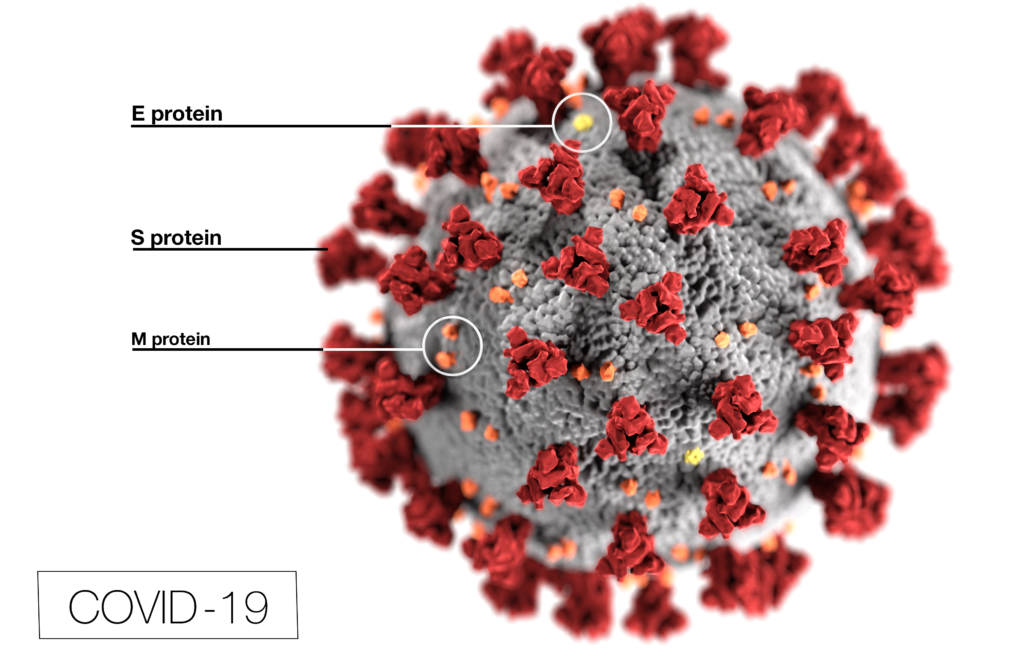
E = envelope; M = membrane
A worldwide pandemic requires scientific research to understand the viral pathogen. The focused efforts of global scientists are even more necessary in the face of a novel coronavirus like SARS-CoV-2, the causative agent of COVID-19. However, because SARS-CoV-2 causes human disease, research efforts are restricted by the need for physical laboratories that are equipped to handle the required level of containment and personnel trained to handle pathogens in these facilities. But what if we could bypass the restrictive facility requirements by engineering a synthetic, replication-defective version of SARS-CoV-2 that more researchers could use to study the pandemic coronavirus, expanding the capacity to test and develop methods to attenuate its devastating effect on humans?
The challenge is to develop a derivative of SARS-CoV-2 that reflects how it behaves in the cell but is compromised such that it is unable to infect cells more than a single time. That is, the virus can get into a cell or be introduced into cells and replicate but is unable to produce infectious virus would offer a pathway to expand research capacity without the use of special laboratory facilities. This replication-defective SARS-CoV-2 could be created to encode as much or as little of the genome needed to examine its lifecycle without becoming a fully infectious virus. In fact, this replication-defective version of SARS-CoV-2 could include additional genetic elements that could be used to control its expression, track the virus in cells and measure the level of its replication. This task has been undertaken by Dr. Bill Sudgen’s group at the University of Wisconsin–Madison McArdle Laboratory for Cancer Research, explained by graduate student Rebecca Hutcheson during her presentation “Making the Virus Causing COVID-19 Safe for Research”.
